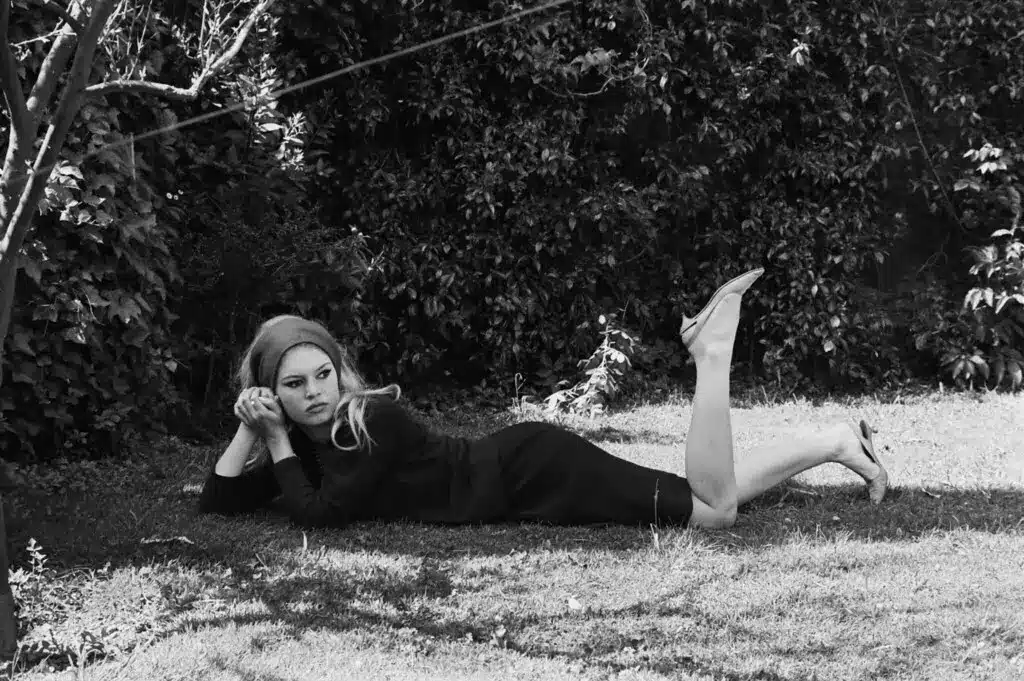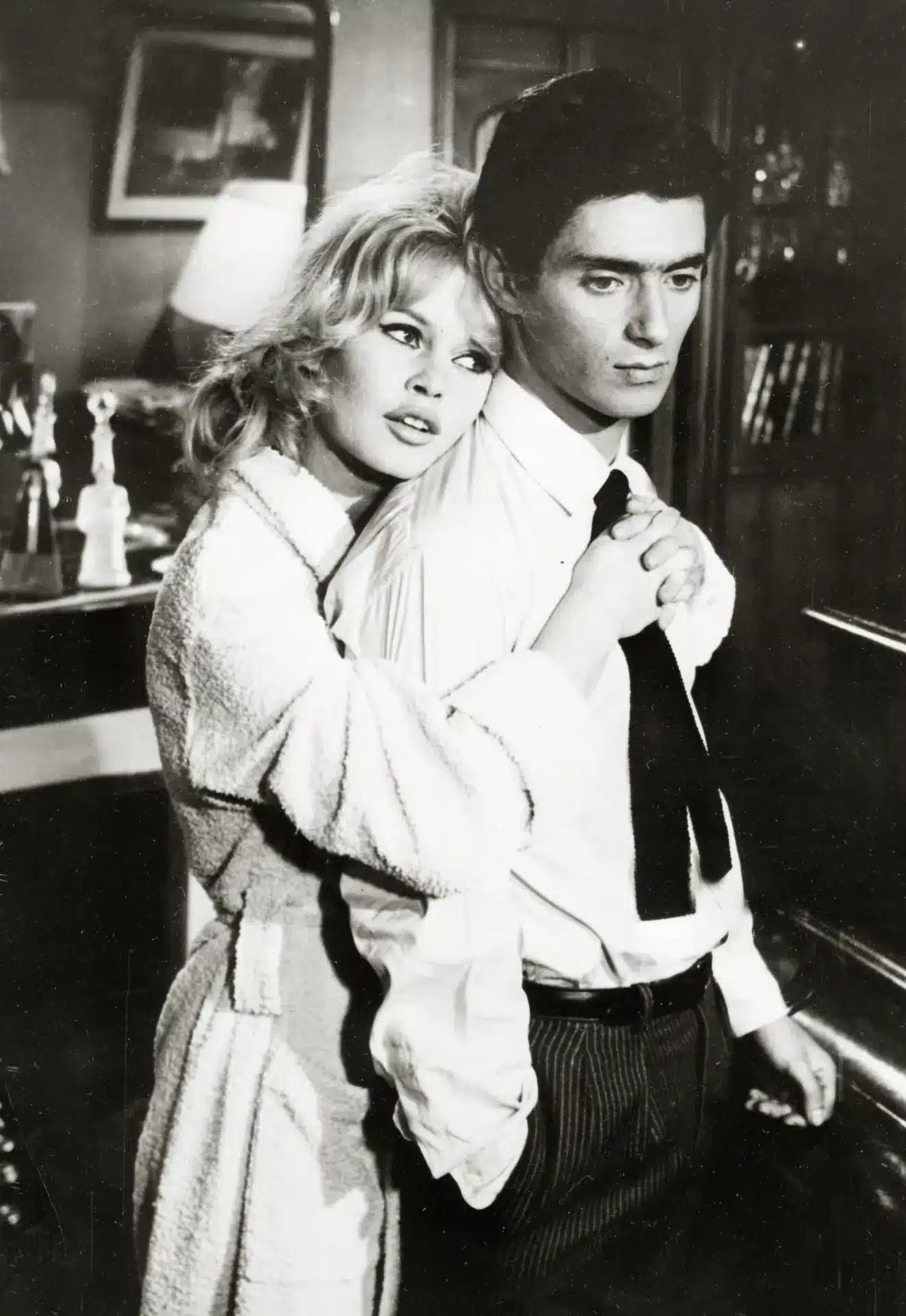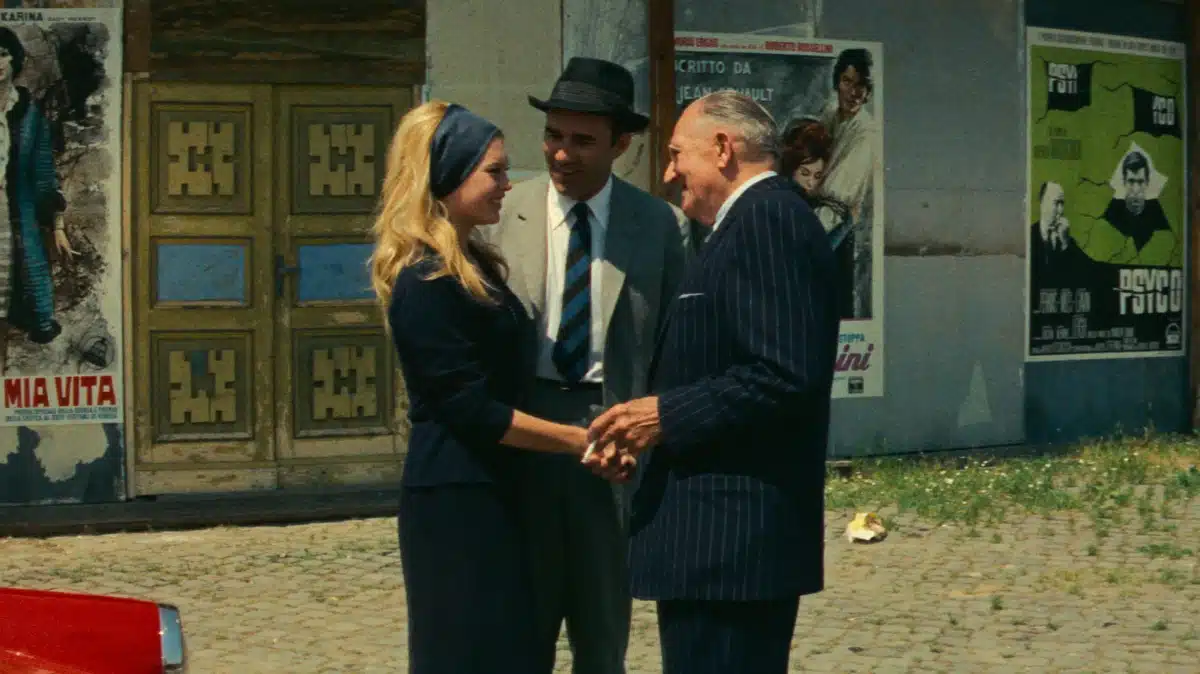
On her 90th birthday, Natasha A Fraser pays hommage to the great French actor.
Brigitte Bardot turns ninety on the 28th September. And though suffering from severe arthritis—“I can barely walk,” the French icon told Le Parisien—she is still making headlines in France whether it’s encouraging the Gilets Jaunes movement, saving animals via her Fondation Brigitte Bardot or controversially endorsing Marie Le Pen. Once a star in France, always a star and B.B.—as she’s fondly known – has never lost her relevance. Last month, when the film star Alain Delon died, Le Monde newspaper quoted her on their front page obituary, just after President Macron; impressive for someone who retired from cinema in 1973.
No question, Brigitte Bardot remains a phenomenon. After the American release of Roger Vadim’s Et Dieu Crea La Femme (1956), she exploded into a global sex symbol at the tender age of 22, a status which continued for decades. Her ravishingly pretty face possessed that rare mix of youthful innocence and bold sexuality. Men fantasized about dating her and young women wanted to emulate her. Photogenic and tomboyish, B.B. eschewed corsets and stockings, sunbathed in a bikini and made messy chignons out of her crowning glory: thick, blond hair. B.B.’s liberated attitude also broke taboos. “The line of her lips forms a childish pout,” wrote Simone de Beauvoir, the famous French philosopher. “Her walk is lascivious…her eroticism is aggressive (and) she follows her inclinations.” All of BB’s daily dramas—her romances, her three failed marriages, her suicide attempts—made her catnip to intrusive photographers. “My life is like a huge prison,” B.B. frequently complained. Bardot Fever heightened to a point that her first and only child, Nicolas-Jacques Charrier, had to be delivered at home while the photographers camped opposite.

BRIGITTE BARDOT IN LA VÉRITÉ (1960). BY HENRI-GEORGES CLOUZOT.
Regarding Bardot’s 48 films in which she starred alongside the likes Dirk Bogarde, Jean Gabin, Edwige Feuillère, James Stewart and Alida Valli the standouts are Clouzot’s La Vérité (1960), Malle’s Vie Privée (1961), Godard’s Le Mépris (1963) and Malle’s Viva Maria (1965). Bardot fought with the abusive and authoritarian Clouzot. “I slapped him back and he stepped on my toes,” she revealed in her memoir, Initiales B.B (1996). In Geneva, during a night shoot for Vie Privée that was loosely based on her life she was called “the whore of France” by onlookers and pelted with tomatoes and rotten vegetables. B.B. befriended Louis Malle but she felt at odds with Jean-Louis Godard and Le Mépris. “His fears, his contradictions, his hesitations, everything that made Godard into a success, I never quite understood,” she admitted. Nor did the Swiss director ease the situation by advising her “to imitate Anna Karina,” his actress wife. “Well, that was a good start!” Bardot wrote. Making Malle’s Viva Maria in Mexico, on the other hand, had been enjoyable. Bardot both liked and respected her co-star Jeanne Moreau and although there were occasional near disasters—B.B. almost sat on a family of deadly scorpions—she was relieved by the lack of paparazzi.
She was 38-years-old when she turned her back on film. “The Bardot myth is over,” she told the novelist Françoise Sagan, and went to live in La Madrague, her hippie hideout near St. Tropez. “I wanted my life back,” she said. Yet it is hard not to feel that Bardot became a prisoner of her hangers-on and toy boys. “Their presence soothed my solitude,” she wrote in Initiales B.B. Alain Delon, her brief houseguest, was appalled. “How can you continue to ruin your life with such stupid people when you have such a wonderfully authentic, uniquely vibrant and majestic heart?” he wrote on a note, left on her pillow.

BRIGITTE BARDOT IN JEAN-LUC GODARD’S LE MÉPRIS (1963)
With regard to her marriages, B.B. was a “good-natured bomb,” to quote her mother. Roger Vadim, her first husband and mentor, forgave her when she ran off with leading man Jean-Louis Trintignant. Her second marriage to actor Jacques Charrier was doomed when she made him give up the role of Philippe Greenleaf in Clement’s Plein Soleil (it made Maurice Ronet famous). As for her third husband, the billionaire playboy Gunter Sachs, Bardot wonders if it wasn’t a bet. “Gunter was a gambler,” she concedes. Though it began with romantic gestures such as sending roses by helicopter and posing in velvet capes on his boat Dracula, Sachs’s controlling ways annoyed her. His lawyers put an injunction on her rendition of ‘Je t’aime non plus,’ Serge Gainsbourg’s scandalous song that was originally written for her. “Serge composed it on my piano,” she recalled.
In Initiales B.B., there are countless anecdotes. In sweltering Rome, when playing Nero’s mistress in Steno’s Mio Figlio Nerone 1955, she ignored pleas and insisted on a real milk bath rather than the starched alternative. It resulted in Bardot wading around in “an atrocious yoghurt-like mix.” A touching one concerns her newly delivered Silver Cloud Rolls Royce in the mid-1960s that her father had to park “because I couldn’t handle the length.” Another adventure describes her first trip to the S.P.A (France’s Société protectrice des animaux, France’s organisation for Protecting Animals) that resulted in her bringing back five dogs and ten cats, squashed into her rolls. “Our arrival was folkloric,” she admitted. At 90, Bardot’s activism continues but she remains disappointed that France still eats horse meat, in spite of all her efforts. ‘Banning that would have been the best birthday present,’ she told Le Figaro newspaper.





